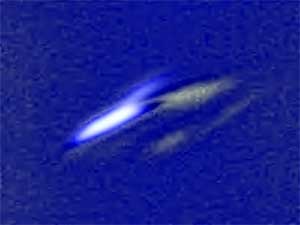|
from Exopolitics Website
There is growing debate concerning 'exopolitics', which is oriented towards public policy issues concerning extraterrestrial life; and its relationship to UFOlogy, which primarily focuses on evidence concerning unidentified flying objects (UFOs).
Supporters of exopolitics largely accept that the existence of extraterrestrial life has been abundantly demonstrated by a vast pool of evidence over the last sixty years provided by eyewitnesses, whistleblowers, scientists, 'experiencers' and leaked government documents.
Supporters of exopolitics claim it is now time to focus on public policy aspects of this evidence, rather than maintain a myopic focus on proving to perennial skeptics that UFOs are real and a legitimate focus on scientific study. Indeed, exopolitics supporters believe that much of this skepticism is unwarranted and can be traced to the debunking recommended by the CIA appointed Robertson Panel in 1953.
The panel delivered a report, the Durant Report (of The Robertson Panel Proceedings), that recommended debunking the 'flying saucer' phenomenon and the possibility of extraterrestrial life, for national security reasons.
The Report stated:
Many individuals are still trying to
grasp what exopolitics is all about, and many 'UFOlogists' remain
highly critical of exopolitics as an emerging disciplinary approach
to public policy issues concerning extraterrestrial life. UFOlogists
still have difficulty grasping that exopolitics is the forerunner to
a legitimate academic discipline that will soon be established in
every major university.
Critics of exopolitics often tend
to focus on some of the pioneers of exopolitical thought in terms of
their methods and ideas, rather than the identifying the merits of a
scholarly approach to public policy issues concerning
extraterrestrial life.
Historians at the time argued that efforts to establish the discipline of 'political science' was ill founded, since the best preparation for a life dealing with public policy issues was to read historical works by Arnold Toynbee, Herodotus, Thucydides, etc.
Well, political science developed anyway
as an academic discipline out of the department of history since it
fulfilled a functional need. The functional need was to better
understand public policy issues and how individuals could be trained
to professionally deal with these.
The functional need is to understand how extraterrestrial life impacts on public policy issues, and to professionally train to deal with these. Exopolitics will be first established in departments of political science as a legitimate sub-field as is currently the case with 'international politics', 'foreign policy', 'comparative politics', 'political economy', etc., in many political science departments.
Eventually, exopolitics will
emerge as a distinct department with an interdisciplinary focus
spanning public policy issues relating not only to political
science, but to exoscience, exoreligion,
exodiplomacy, etc.
The choice of the word 'exopolitics' to
represent this nascent academic discipline has long term strategic
value due to the functional need it fills. Furthermore, exopolitics
is the term of choice to deal with public policy issues like the
national security cover up of extraterrestrial life and
technologies.
Exopolitics is here to stay as the discipline of choice for a new branch of knowledge that will revolutionize academic studies and the world as we know it.
|

